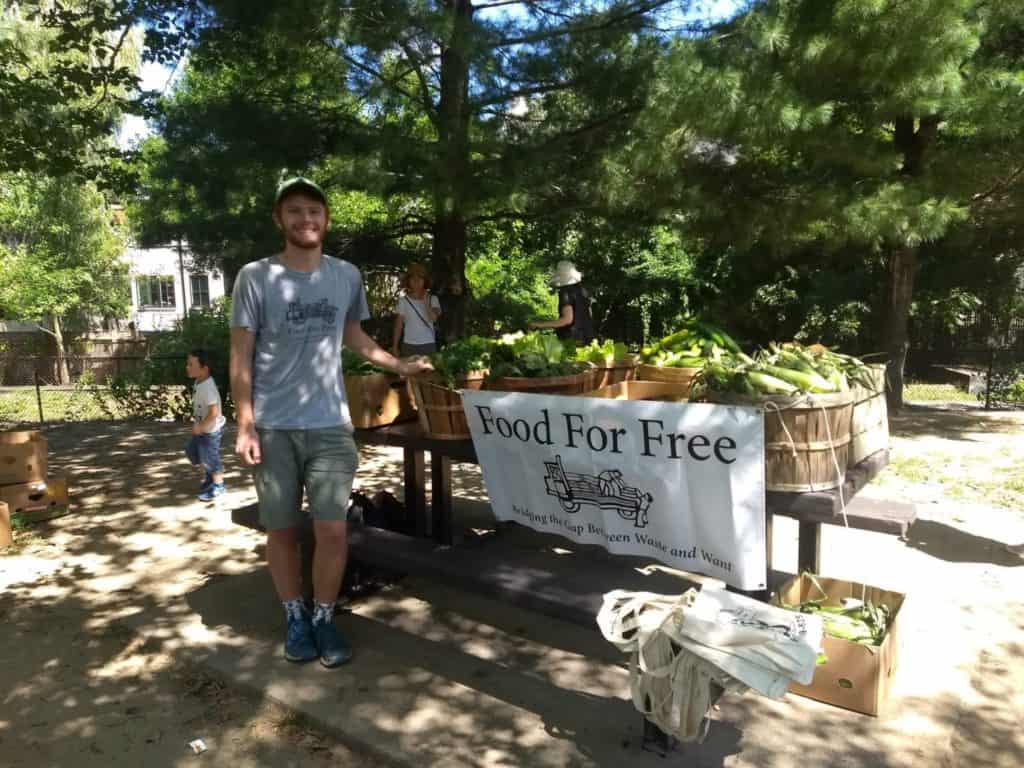College student. What comes to mind when you read those words?
Many people picture college students as 18-22 years old, earning a 4-year degree, living on campus, perhaps receiving financial support from parents, perhaps anxious about paying back loans, or perhaps both. In reality, this kind of student is now in the minority.
Our newest collaboration is with Cambridge College, just down the street from Food For Free. Their classes are filled with the so-called “non-traditional” students who now make up the majority of U.S. higher ed students, and we’re now supporting two programs to help meet these students’ unique needs, Coffee Hour and “Healthy Body, Healthy Mind.”
A juggling act
Reverend Cheng Imm Tan is the Community Manager for Student Support at Cambridge College and she wants to help her students succeed. “You might not know, but 40% of our students make less than $25,000 a year,” she tells me. The average student age at Cambridge College is 36 years old, and a majority are juggling their studies alongside work and family commitments.
Bunker Hill Community College’s Wick Sloane writes powerfully about student needs, saying, “Some weeks, I have spent more time helping students sign up for food stamps than I have correcting essays.”
Many people don’t think of college students as having to worry about childcare, full-time jobs, or feeding their families, but these concerns are very real for many students. “One problem for adults is the constant, competing tension between life obligations and educational obligations. Life obligations often come first,” says Jamie Merisotis, president of the Lumina Foundation for Education.
Reverend Tan says that this balancing act is the biggest concern her students face. “It causes a lot of stress and anxiety,” she says.
Coffee Hour and “Healthy Body, Healthy Mind” are aimed at relieving some of that stress.
Coffee Hour
“When we were doing Coffee Hour on our own, I would go out and buy store-bought cookies, and we would have maybe 20 people,” Reverend Tan explains. In September, the new partnership launched and she advertised that there would be fresh, nutritious, filling foods from Food For Free—and more than 75 people showed up.
“I couldn’t put the food out fast enough,” she said. “The most popular items that went immediately were the salads, sandwiches, fruit cups and yogurt…The boost in attendance is directly related to the quality of food that we’re getting—good, healthy food instead of pastries.”
Coffee Hour is also aimed at fostering connection and community—perhaps especially important when you consider that 80% of jobs are filled through personal referrals. As Reverend Tan reports, “People felt really welcomed, really cared about, and it was really an almost festive environment. And, as much food as I thought I had, by the time six o’clock came around, I had nothing left.”
Healthy Body, Healthy Mind
“Healthy Body, Healthy Mind” is a two-part event for Cambridge College students: first, there’s a presentation about how nutrition affects mood, focus, energy, and general health. Then, there’s a Free Fresh Produce Market, where students can take home nutritious grocery items provided by Food For Free.
Food For Free has seen success with our free markets in elementary and middle schools, as well as in the park during the summer, and Reverend Tan was sure that this event would meet some of her students’ needs, but once again, the turnout was even higher than expected:
“We got two loads from Food For Free, and I thought, ‘Wow, I think this is going to be more than enough!’ But by the time 6 o’clock came, there wasn’t a shred of lettuce or a stick of carrot left. Obviously, there is a huge need for good, fresh, healthy food.”
Many students also appreciated the opportunity to learn about nutrition. In the words of one attendee, “What made the biggest impact on me was the part about the food-brain connection…Being a student myself, my academic performance depends quite a lot on my cognitive performance, so being reminded how certain foods can enhance our brain health was very valuable. Simple things like adding cup of blueberries, green vegetables, and some healthy fats can make tremendous difference.”
Reverend Tan heard this from many students: “One attendee stopped by the next day and said ‘I made a vegetable fruit shake! I’m really trying to change and eat healthy.’” she shared. “But eating healthy costs a lot.”
A photo posted by Cambridge College (@cambridgecollege_edu) on


